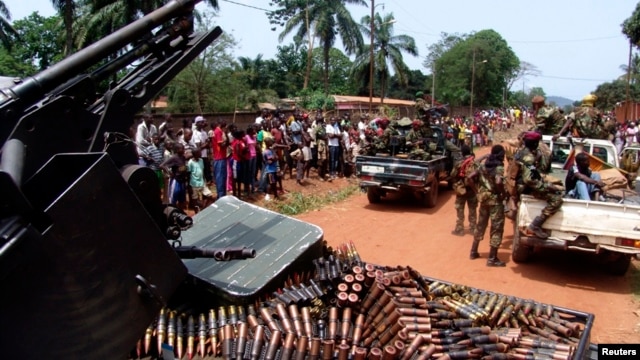By Ellis Cortez
Impunity Watch Reporter, South America
BRASILIA, Brazil – A jury has found 25 Brazilian police officers guilty of killing 52 inmates during the 1992 riot at Sao Paulo’s Carandiru prison. It was country’s bloodiest prison riot in which 111 prisoners died.

Judge Rodrigo Tellini de Aguirre Camargo sentenced those convicted to prison terms of 624 years each for their roles in what has been dubbed the Carandiru massacre. The officers, nine of whom are still on active duty, will also lose their jobs. Currently under Brazilian law there are no life sentences, and no convicted person can serve more than 30 years in jail. The officer’s attorney informed reporters that she would appeal the sentencing. The officers will be allowed to remain free pending the outcome of their appeal.
The lawyer for the officers, Ieda Ribeiro de Souza, argued they were only doing their duty and acted in self-defense, as many of the inmates were armed. She further stated that the fault lies with then Governor Luiz Antonio Fleury Filho, who oversaw security forces in the state.
“Who should be here is Dr. Fleury. He didn’t go [to Carandiru] himself” because he had political protection, said Ribeiro de Souza.
The riot, which began on October 2, 1992, was sparked by a fight between two rival gangs that started with a quarrel during a soccer game. It escalated into an uprising that quickly spread through the penitentiary, which was built to hold fewer than 4,000 inmates but was housing nearly 8,000. The riot went on for around three hours before more than 300 military police officers stormed the Carandiru prison. The officers gunned down more than 100 inmates within 30 minutes. No police officers were killed.
Autopsies showed the dead were riddled with an average of five bullets. The revolt ended in a massacre that exposed the harsh conditions of prisons in Brazil and it became an iconic example of how Brazil’s military police can sometimes kill with impunity.
Some survivors of the violence said police made little attempt to negotiate with the revolting prisoners. The officers entered firing, and continued to fire on prisoners who had surrendered or were hiding. Others said they hid among the scores of bodies, pretending to be dead, to avoid the gunfire.
The sentencing is the latest in a series of separate trials of police officers accused of executing inmates during the 1992 massacre. In April of this year, 23 officers were sentenced to prison terms of 156 years each for their part in killing 13 inmates during the same massacre. Another 31 officers will be tried in the coming months in connection with the slayings at the now-defunct prison.
Human rights groups have long decried conditions in Brazil’s prisons and the behavior of the military police. The Carandiru massacre gained special attention in Brazil because of its size and a popular 2003 movie.
For more information please see:
BBC – Brazil Carandiru jail massacre police guilty – 3 August 2013
Reuters – Brazil court sentences 25 police officers for prison massacre – 3 August 2013
Los Angeles Times – Brazil court sentences 25 police officers in 1992 prison massacre – 3 August 2013
The Wall Street Journal – Brazil Police Officers Found Guilty in 1992 Prison Massacre – 3 August 2013
Fox News – Jury finds 25 Brazilian police officers guilty of killing inmates in 1992 prison riot – 3 August 2013



